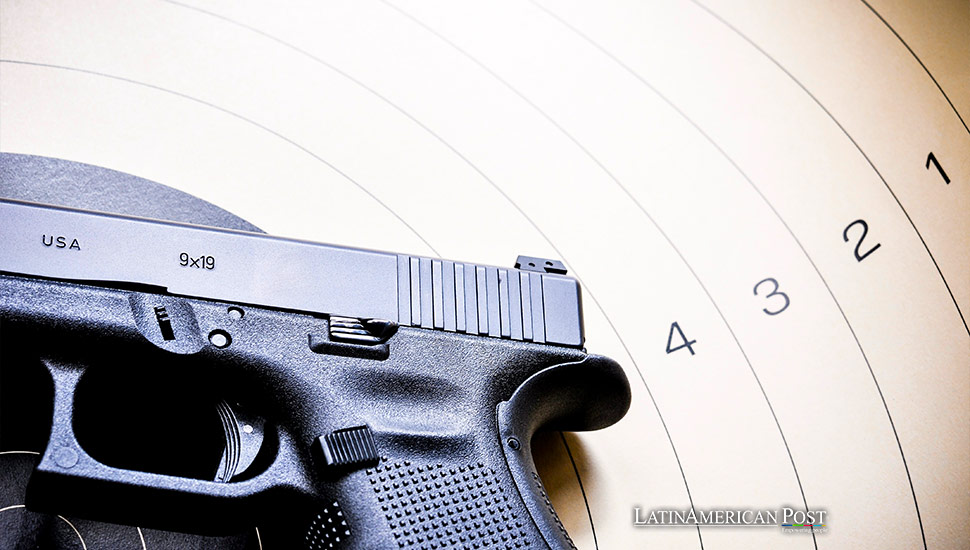Nicaragua’s Legal Challenge to Germany’s Arms Sales to Israel

Nicaragua’s attempt to halt German arms sales to Israel at the International Court of Justice underscores a complex web of international law, national interests, and geopolitical alignments.
In a notable legal confrontation at the International Court of Justice (ICJ), Nicaragua has challenged Germany over its arms sales to Israel, marking a significant intersection of international law and geopolitical tensions. The case, brought forward by Nicaragua earlier this year, argues that Germany’s actions—supplying military hardware to Israel—breach the United Nations Genocide Convention.
Nicaragua Challenges Germany’s Complicity
The heart of Nicaragua’s argument hinges on the assertion that Germany, by selling arms to Israel, becomes complicit in actions undertaken by Israel in Gaza, which Nicaragua deems as potential war crimes. This bold legal move comes against the backdrop of increasingly strained Israeli-Palestinian relations and reflects Nicaragua’s longstanding support for the Palestinian cause.
Germany, a staunch ally of Israel and its second-largest arms supplier after the United States, has seen a significant increase in its arms sales to Israel. In 2023, about 30% of Israel’s military equipment purchases, totaling $326.5 million, originated from Germany—a dramatic tenfold increase from the previous year. The German government, however, has defended its position, stating that the lawsuit is unjustified and affirming its non-involvement in Middle Eastern conflicts.
Following Nicaragua’s appeal, the ICJ was asked to immediately implement emergency measures to halt German arms transfers to Israel. However, the court ruled against these measures, with Presiding Judge Nawaf Salam expressing continued deep concern over the “catastrophic living conditions of the Palestinians in the Gaza Strip,” yet indicating the complexity of adjudicating such emergency interventions.
Implications for International Relations
The broader implications of this case touch on several sensitive and critical themes in international relations. Firstly, it highlights the tension between national sovereignty and global legal norms, especially regarding arms sales and international conflict. Secondly, it underscores the differing views on accountability and collaboration in conflict settings, a subject of increasing relevance in a globalized world where arms trade networks often blur direct lines of responsibility.
Moreover, the case raises questions about the effectiveness and reach of international law, particularly the UN Genocide Convention and its application in conflicts involving major global powers and their allies. While Germany halted funding to the UN’s aid agency, UNRWA, following allegations of staff involvement in attacks on Israel, it has maintained its position as a significant humanitarian aid donor to the Palestinians, complicating the narrative around its role in the region.
Despite its criticized human rights record under President Daniel Ortega’s government, Nicaragua’s decision to bring this case forward also speaks volumes about the intricate dance of moral and political arguments on the international stage. Ortega’s government has faced accusations from the international community, including a “relentless” crackdown on human rights, as stated by the UK’s mission to the UN. This juxtaposition of domestic human rights issues with international legal activism poses challenging questions about credibility and motivations in global politics.
International Watchfulness
As the ICJ proceeds to determine its jurisdiction and potentially adjudicate the case itself—a process that could span years—the international community remains watchful. The outcomes could set precedents for how international courts handle cases of alleged complicity in conflict through arms sales, influencing future arms trade regulations and international diplomatic relations.
Also read: Granada, Nicaragua’s Colonial and Tourist Jewel, Celebrates 500 Years
Nicaragua’s legal challenge against Germany at the ICJ highlights the ongoing complexities of the Israeli-Palestinian conflict. It underscores the broader dynamics of international law, national policies, and their intersections with global human rights issues. How this case unfolds will likely resonate beyond the borders of the countries directly involved, affecting international legal practices and diplomatic engagements worldwide.





